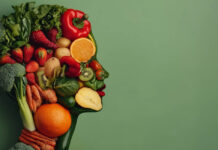Alcohol seems to have found a place in almost all adult leisure activities, from Sunday brunch, to celebratory dinners, to 5 p.m. on any given weekday. But a new culture has emerged that eschews the post-work Pinots and habitual Sunday football beers, and suggests that if these are staples in your life, you may want to check yourself.
With the Canadian Centre on Substance Abuse recently reporting that no amount of alcohol is safe and a continuum of health risks begin to increase at just two drinks per week, there’s never been a better time to examine your consumption habits. If trading in hangovers for waking up bright-eyed and bushy tailed sounds appealing to you, then read on. The sober curious movement might motivate you to curb your drinking or ditch it altogether, so you can live your life healthy AF (alcohol-free).
PIQUE YOUR CURIOSITY
Sober curiosity stems from multiple aspects of a new culture that’s concerned with both physical and mental wellness. After all, it seems counterintuitive to pour your energy into eating nutritiously and exercising to keep your body in prime condition, only to abuse it with alcohol later on.
And it is, according to Kayla Lyons, founder and CEO of 1,000 Hours Dry. “Our society is becoming more and more health conscious,” she says. “You can’t really be your best self hungover, and you definitely can’t reach peak physical health if you drink—never mind the detriments alcohol has on mental health.”
According to the National Institute on Alcohol and Alcoholism, those detriments are widespread. Alcohol negatively affects virtually all organs, and contributes to a higher risk of developing multiple types of cancers. And that’s not just from continued heavy drinking. PLOS ONE reports that a single night of binge drinking causes your gut to leak bacterial toxins into your bloodstream, resulting in inflammation and tissue destruction.
When you examine the alcohol-mental health relationship deeper, you’ll be shocked at how closely intertwined they are. “Alcohol can seem like a quick-fix solution to ‘check out’ from responsibilities and obligations,” explains Dr. Lauren Cook, PsyD. Constantly looking forward to that evening glass of wine to unwind or relying on a drink to loosen up in social situations could all point to underlying emotions you may be avoiding dealing with.
SOBRIETY YOUR WAY
While you may not feel the need to become completely sober, you might be tempted to take the dry lifestyle out for a test drive and see how it affects your physical and mental health. “Being sober curious simply means you’re interested in the benefits of living alcohol-free, and you may try ‘sober tourism’ for a while without commitment,” says Lyons. “You can take a week off, a month off, do 1,000 hours dry, and just try it out, no pressure.”
There are no hard and fast rules on how to become sober curious, but Cook recommends aligning your goals with who you know yourself to be. “Some people can moderate their use, while others need to go ‘cold turkey,’” she says. “If you’re unsure what’s best for you, see if you’re able to limit your drinking to one to two drinks per sitting. If your drinking still gets out of hand, it’s an indication that you need to set some harder limits on your use.”
The clean-living support that’s available to you as you decide to indulge your curiosity is immense. “The sober curious are challenging the definition of what it means to be alcohol-free,” says Christine Wayne, founder of On the Mocks, an online community that promotes alcohol-free beverages. “It can be yoga, it can be mocktails, it can be Instagram communities filled with positivity and humor. By attaching yourself to being ‘sober curious,’ you’re joining a community. You don’t have to say, ‘I’m never drinking again,’ but instead, ‘I’m not drinking right now.’”
OBSTACLES ABOUND
The initial motivation for casual sobriety can feel exhilarating, but executing it is another story, and you’re bound to run into some obstacles. “Becoming sober is incredibly uncomfortable,” says Cook. Because these changes will demand that you examine how you cope with hard feelings such as stress, inadequacy, shame, and vulnerability, prepare yourself for some unpleasant moments.
And if anyone knows working her way through hardship without giving in to alcohol, it’s Wayne, who in just the span of a year and half experienced significant illness within her family, as well as unexpectedly losing her job. “All of these examples were times when I wanted to drink to lessen the pain—to ease my stress, to escape,” she says. So how did she cope? “Occasionally, it was as simple as having an alcohol-free option in my hand, and just remaining calm. But what really keeps me from drinking is knowing that it won’t solve anything. Every single problem that exists in this very moment will still be here after a drink.”
But it’s not just stress and uncomfortable emotions that drive us to drink. If you’re experiencing FOMO at just the thought of skipping brunch mimosas, adjust the way you approach socializing. “You can still choose to do all the activities [that you used to]; the experience may just be different,” says Lyons. “When I stopped drinking, I realized I didn’t really enjoy the parties or the bars after all, and I found other hobbies that made me feel happy and fulfilled.”
BUT IT’S WORTH IT
It’s true that you’ll have to walk through some difficult moments in your sober journey, but it’s not all bad. In fact, the whole point is to thrive, so know that you can look forward to physical benefits such as weight loss, clearer skin, and less bloating, and mental health boosters like more energy, better focus, and heightened productivity. And the space you make in your life for more authentic experiences will be monumental.
But perhaps the biggest improvement you’ll notice is the relationship you have with yourself. At the end of the day, sober curiosity is an exercise in getting to know yourself better: What makes you tick, what your triggers are, and when you’re tempted to rely on alcohol as a crutch.
“As far as feelings go, you have to realize that the only way out is through,” says Lyons. “Allow yourself to experience what emotion it is that you want to run from, and show yourself how strong you really are.”
Alcohol Facts
- The International Agency for Research on Cancer has classified alcohol as a Group 1 carcinogen (the highest risk group), which also includes asbestos, radiation and tobacco.
- Drinking more than two standard drinks per week increases your risk of developing several different types of cancer, including breast and colon cancer. Other alcohol-related consequences for yourself and others also increase.
- Approximately 80 per cent of Canadians consume alcohol, with 15 per cent of those individuals exceeding the recommended guidelines for low-risk drinking.
















